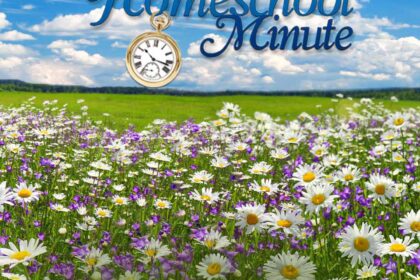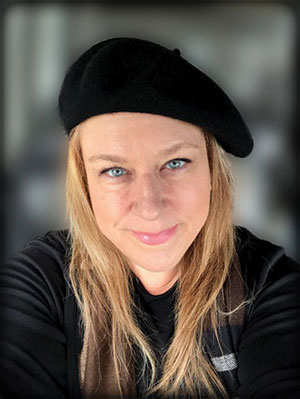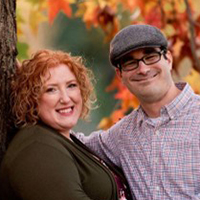May 24, 2023 – Living Books and Good Literature – What Are They?


Living Books and Good Literature – What Are They?
May 24, 2023
Gena Suarez
Find Books That Promote Good Values
Todd Wilson
A Good Book Is One You Can’t Put Down
The Canadian Schoolhouse
Historical Literature Discussion Ideas
Adam and Dianne Riveiro
Four Components of Good Books
| Be sure to scroll to the bottom to enter the contest and see the freebies of the month! |

Hey, Mama!
Find Books That Promote Good Values
“Thy word is a lamp unto my feet and a light unto my path.”- Psalm 119:105
Hey Mama,
I am so grateful for the above verse. Trials will come. It’s promised. But we have a light to our path, so we can do this, Mama. He is holding the lamp right to our feet; we cannot fall if our eyes are on Him. Follow the Lord via His word. I’m delighted (even during trials!) to follow Him. What a loving Father we have. What an honor to obey the King of kings. The one, ever-present friend you can count on is Jesus Christ. He is faithful and He never changes.
Get to know the God of all time and space, and beyond even that because His ways are so much higher than ours. Get into His word and read. The Bible is called “the Good Book” for a reason. It contains so much wisdom, so much beauty, and, of course, the greatest love story ever told—the story of God sending His Son so that you might know Him and be with Him throughout all eternity. If possible, start and end each homeschool day in the Word.
And when studying literature, seek out books that contain values that mimic those of the teachings of Jesus. These books contain characters who show love, not hate; mercy, not revenge; and humility, not arrogance. And of course, in the end, just as it does in the book of Revelation, good triumphs over evil. These are the types of books I want in my homeschool. For further suggestions, check out these articles from The Old Schoolhouse® Magazine.
The Point of Literature, by Paul Schaeffer
Classic Literature: A Gentle Introduction, by Marla Schultz
How to Recognize A Living Book, by Karen Andreola
Using good literature to teach our children isn’t always easy. There are so many books with worldly, self-centered messages trying to lure them away. But keep your head up, Mama. Your great God and Savior will never leave or forsake you. Even in your darkest hour, He is there. And when joy comes in the morning, He rejoices alongside you. For now, His hand is on your head.
“O satisfy us early with thy mercy; that we may rejoice and be glad all our days.” – Psalm 90:14
~gena

Todd Wilson
A Good Book Is One You Can’t Put Down
Being a normal old dad, I’m not sure what the difference is between living books and good literature. Honestly, as far as my kids are concerned, I don’t care what kind of labels you attach to books as long as they’re fun to read and engaging.
In fact, if I were to attach labels to books I’d divide them into two groups: Engaging and Boring. I don’t care if the book is a classic or written by some famous dead guy. If it’s boring, it’s not going to be read, enjoyed, or remembered. And we’re certainly not in the business of reading books just to say we read them.
So to me, a good book is one your kids can’t put down—one that they read in the bathroom, bedroom, and on a car ride to Walmart. I don’t care if what they read is made up (I think they call that fiction), written on the back of a cereal box, or just a few pages in length. I just want my children to enjoy reading and engage with what they’ve read (knowing that not everyone LOVES reading).
Here’s what I want for you: You read, and have your kids read whatever you want them to read and plug your ears to the advice of literature experts and everyone else. Do what you think is best and what brings smiles to your children.
And be real,
Todd
About the author
Todd Wilson is a husband, dad, grandpa, writer, homeschool conference speaker, and former pastor. Todd’s humor and down to earth realness have made him a favorite speaker all across the country and a guest on Focus on the Family. As founder of The Familyman and The Smiling Homeschooler, his passion and mission are to remind moms and dads of what’s most important through weekly emails, podcasts, seminars, and books that encourage parents. Todd, and his wife Debbie, homeschool four of their eight children (the other four are homeschool graduates) in northern Indiana and travel America in the Familyman Mobile. You can read more at www.familymanweb.com.
Children’s Books Available on https://amazingartists.online

The Canadian Schoolhouse
Historical Literature Discussion Ideas
Excerpt from Canadian Historical Fiction Authors.
Reading books by historical fiction authors can open doors to opportunities for learning. One might learn things such as:
- Key dates in history
- Locations of historical sites and events
- Important figures and events in history
- The writing style of historical fiction authors
Developing an interest in historical fiction and nonfiction authors can lead to children and parents alike learning more about Canadian history, nature, improvement of writing skills, and thankfulness to God for His guidance throughout history.
Discussion Prompts: Canadian Authors and Historical Fiction
By learning about some of Canada’s historical fiction authors, it can lead to many topics for discussion as a family. Below are a few questions that can become prompts on subjects to discuss.
- What historical events took place in Canada during the lives of these authors? What historical events took place around the world?
- How can a setting or location affect a story?
- What influence do others (family members or characters in stories) have on both personal history and in historical fiction?
- What do you like about the writing styles of Canadian historical fiction authors? What differences do you notice between their writing styles?
Unit Studies
As you study Canadian authors and historical fiction, you may decide to look for or create a unit study. For example, reading Catherine Parr Traill and Susanna Moodie’s writings can be turned into a unit study that would include many subjects.
- English: Write a story or play about a character moving to or settling in Canada in the nineteenth century.
- Science and Botany: Learning about the plants that grow in Ontario.
- Geography: Where did Catherine and Susanna live in England and where did they settle in Ontario?
- History: What historical events were taking place in Canada during the lives of Catherine and Susanna? Is there a historical site nearby that you can visit to learn more about what life was like during the nineteenth century?
- Arts: With the play that you wrote, practice and stage or perform the play for family.
About the author
This article has been written by homeschooling staff writers of The Canadian Schoolhouse (TCS). Enjoy more of our content from TCS contributors and staff writers by visiting our themes page that has a new theme topic added every month!

Adam and Dianne Riveiro

Pillar of Future
Adam and Dianne Riveiro – Four Components of Good Books
I love reading! Give me a good book and a nice cup of tea, and I could get lost for hours. But what constitutes a “good” book? For me, it has to have four components:
- It needs to grab my attention . . . and keep it!
- It should utilize rich language.
- It should convey timeless ideas, not just facts.
- The author’s passion for the subject should jump off the page.
Children should be introduced to such works from an early age. What better way to stretch a child’s vocabulary than through reading and discussing a great book? Introduce them to different time periods by reading books set in those eras, or fire their imagination by reading a book so vivid that your child can picture the story being told. A well-written book can cause a child to question the world around them and help define their world view.
C. S. Lewis stated, “A children’s story that can only be enjoyed by children is not a good children’s story in the slightest.”
Reading a “twaddle” book now and then is ok, but be careful of these being the only books your children can access. Don’t be afraid of using classic literature in your homeschool. Your child’s mind needs it!
-Dianne



